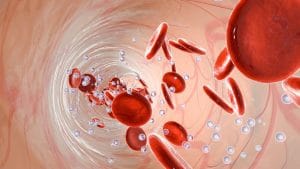 Fighting periodontal (gum) disease isn’t just about attacking the harmful oral bacteria that cause it. It’s also about preserving and protecting the healthy periodontal tissue that has not yet been affected by the disease. For optimal results, Dr. Kania often employs a variety of minimally invasive and holistic periodontal treatment, including ozone therapy for better periodontal health. Because the treatment targets oral bacteria with nothing more than oxygen, it can simultaneously fight your periodontal disease and save the tissue that is still healthy. (more…)
Fighting periodontal (gum) disease isn’t just about attacking the harmful oral bacteria that cause it. It’s also about preserving and protecting the healthy periodontal tissue that has not yet been affected by the disease. For optimal results, Dr. Kania often employs a variety of minimally invasive and holistic periodontal treatment, including ozone therapy for better periodontal health. Because the treatment targets oral bacteria with nothing more than oxygen, it can simultaneously fight your periodontal disease and save the tissue that is still healthy. (more…)
The Systemic Worries of Chronic Periodontal Disease
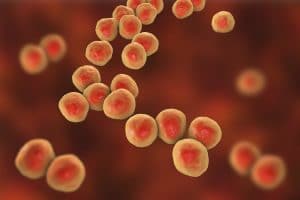 There are many reasons to worry about periodontal disease. For instance, it can cause permanent damage to your gums and the ligaments that hold your teeth in place, making it the leading cause of adult tooth loss. However, how it affects your oral health isn’t the only significant consequence of severe periodontal disease. For many patients, its presence and the prolonged inflammation associated with it can also have a substantial impact on their systemic wellbeing. Today, we examine the systemic worries of chronic periodontal disease, and how managing the condition can improve your chances of avoiding other health issues. (more…)
There are many reasons to worry about periodontal disease. For instance, it can cause permanent damage to your gums and the ligaments that hold your teeth in place, making it the leading cause of adult tooth loss. However, how it affects your oral health isn’t the only significant consequence of severe periodontal disease. For many patients, its presence and the prolonged inflammation associated with it can also have a substantial impact on their systemic wellbeing. Today, we examine the systemic worries of chronic periodontal disease, and how managing the condition can improve your chances of avoiding other health issues. (more…)
What Does Periodontal Maintenance Actually Mean?
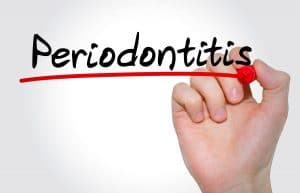 Despite the fact that periodontal disease is highly preventable, it still affects a large majority of adults of all ages. That’s largely because the disease doesn’t go away and typically cannot be cured once it develops. Fortunately, it’s most damaging effects (including tooth loss) can still be successfully prevented with a customized schedule of expert periodontal maintenance. Even if you have periodontal disease, you can stop it from growing worse by routinely cleaning and maintaining your healthy periodontal tissues. (more…)
Despite the fact that periodontal disease is highly preventable, it still affects a large majority of adults of all ages. That’s largely because the disease doesn’t go away and typically cannot be cured once it develops. Fortunately, it’s most damaging effects (including tooth loss) can still be successfully prevented with a customized schedule of expert periodontal maintenance. Even if you have periodontal disease, you can stop it from growing worse by routinely cleaning and maintaining your healthy periodontal tissues. (more…)
A Refresher on Good Hygiene
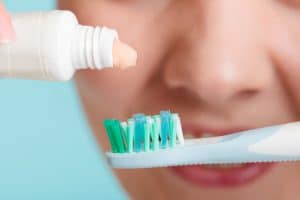 After you’ve brushed and flossed your teeth every day for so long, it’s natural to grow a little less diligent about doing so correctly. You may rush it some mornings or not fully pay attention on others, making it more likely that you’ll miss spots of plaque. When you do, those spots calcify, turning into tartar and becoming impervious to your toothpaste and water. The formation of tartar is the reason why chronic issues like periodontal disease form – the bacteria within the biofilm have ample time to attack your teeth and periodontal tissues. Today, we offer a brief refresher on good hygiene so you’ll be less likely to let such risks slip by as you clean your teeth every day. (more…)
After you’ve brushed and flossed your teeth every day for so long, it’s natural to grow a little less diligent about doing so correctly. You may rush it some mornings or not fully pay attention on others, making it more likely that you’ll miss spots of plaque. When you do, those spots calcify, turning into tartar and becoming impervious to your toothpaste and water. The formation of tartar is the reason why chronic issues like periodontal disease form – the bacteria within the biofilm have ample time to attack your teeth and periodontal tissues. Today, we offer a brief refresher on good hygiene so you’ll be less likely to let such risks slip by as you clean your teeth every day. (more…)
How Dental Implants Reduce Your Risks of Future Tooth Loss
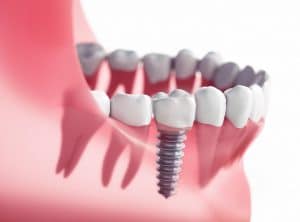 Not everyone realizes that after losing one or more teeth, their risks of losing more increases significantly. This is due to many different factors; for instance, the empty space in your smile can cause other to shift, which can loosen your jawbone’s grip on their roots. Even if you fill that space, the loss of the roots within your jawbone can cause the bone structure to slowly erode, losing density due to the reduced stimulation every time you bite and chew. Fortunately, dental implants can help stop this erosion and prevent your jawbone from growing weaker by reestablishing that stimulation and offering more lifelike support for your dental prosthesis. (more…)
Not everyone realizes that after losing one or more teeth, their risks of losing more increases significantly. This is due to many different factors; for instance, the empty space in your smile can cause other to shift, which can loosen your jawbone’s grip on their roots. Even if you fill that space, the loss of the roots within your jawbone can cause the bone structure to slowly erode, losing density due to the reduced stimulation every time you bite and chew. Fortunately, dental implants can help stop this erosion and prevent your jawbone from growing weaker by reestablishing that stimulation and offering more lifelike support for your dental prosthesis. (more…)
Does Smoking Really Cause Gum Disease?
 There are many factors that can increase your risks of gum disease, but if you smoke or chew tobacco, then that may be one of the most significant ones. It’s no myth that smoking can cause gum disease: according to numerous studies, people who use tobacco are often several times more likely to develop than disease than those who don’t. Today, we examine exactly what gum disease is, and why habits like tobacco use are such a substantial reason why it’s still one of the most prevalent chronic dental conditions. (more…)
There are many factors that can increase your risks of gum disease, but if you smoke or chew tobacco, then that may be one of the most significant ones. It’s no myth that smoking can cause gum disease: according to numerous studies, people who use tobacco are often several times more likely to develop than disease than those who don’t. Today, we examine exactly what gum disease is, and why habits like tobacco use are such a substantial reason why it’s still one of the most prevalent chronic dental conditions. (more…)
Are You Flossing Your Teeth Right?
 The point of sticking to a good hygiene routine is to control the harmful plaque (a biofilm of oral bacteria) and food particles that collect on your teeth every day. Keeping them under control helps you prevent the issues that they can cause, such as gingivitis (the first stage of destructive periodontal disease). In addition to brushing your teeth at least twice a day, that also requires flossing every day to remove these substances from between your teeth. Today, we examine a few ways in which you can make sure you’re flossing well enough to consistently protect your smile from dental health trouble. (more…)
The point of sticking to a good hygiene routine is to control the harmful plaque (a biofilm of oral bacteria) and food particles that collect on your teeth every day. Keeping them under control helps you prevent the issues that they can cause, such as gingivitis (the first stage of destructive periodontal disease). In addition to brushing your teeth at least twice a day, that also requires flossing every day to remove these substances from between your teeth. Today, we examine a few ways in which you can make sure you’re flossing well enough to consistently protect your smile from dental health trouble. (more…)
What Happens When Gingivitis Gets Worse?
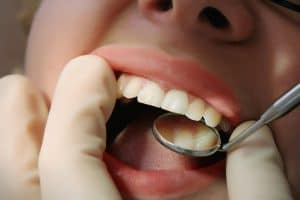 Gingivitis is common, and while it can easily be prevented or controlled, it still becomes a serious threat to many patients’ oral and overall health. When left unchecked, it can quickly progress into more serious forms of gum disease, such as periodontitis – the leading cause of adult tooth loss. Because the signs of gingivitis can often go unnoticed at first, the condition and the damage it causes often grow more prominent by the time patients seek treatment. Today, we examine how this happens, and what steps you can take if you notice that your periodontal health is worsening. (more…)
Gingivitis is common, and while it can easily be prevented or controlled, it still becomes a serious threat to many patients’ oral and overall health. When left unchecked, it can quickly progress into more serious forms of gum disease, such as periodontitis – the leading cause of adult tooth loss. Because the signs of gingivitis can often go unnoticed at first, the condition and the damage it causes often grow more prominent by the time patients seek treatment. Today, we examine how this happens, and what steps you can take if you notice that your periodontal health is worsening. (more…)
How Do You Know if Gingivitis Forms?
 Most common dental issues, including gingivitis, exhibit warning signs in their earliest stages. However, these signs aren’t always obvious, and many patients miss them altogether until they become more severe. For instance, when gingivitis first develops, the bacteria-caused infection can cause your gums to become red and inflamed. However, they may not ache or become sensitive, which can make it even easier to overlook these symptoms and give the condition the chance to grow worse. Today, we take a look at how you can tell if gingivitis forms and what you should do if you notice that it has. (more…)
Most common dental issues, including gingivitis, exhibit warning signs in their earliest stages. However, these signs aren’t always obvious, and many patients miss them altogether until they become more severe. For instance, when gingivitis first develops, the bacteria-caused infection can cause your gums to become red and inflamed. However, they may not ache or become sensitive, which can make it even easier to overlook these symptoms and give the condition the chance to grow worse. Today, we take a look at how you can tell if gingivitis forms and what you should do if you notice that it has. (more…)
Things that Increase Your Risks of Periodontal Disease
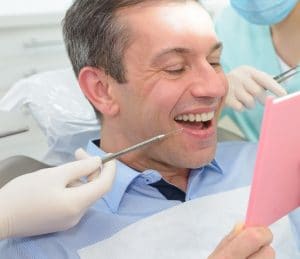 Periodontal disease has a definite cause – harmful oral bacteria – but everyone’s risks for developing the disease differs. For instance, if you take excellent care of your teeth and gums by brushing them twice a day, flossing at least once, and visiting your dentist regularly, then you’re less likely to develop gum disease. Likewise, if you skip your hygiene routine, avoid visiting your dentist, or experience any of the following, then you may be more likely to have to deal with periodontal disease in the near future. (more…)
Periodontal disease has a definite cause – harmful oral bacteria – but everyone’s risks for developing the disease differs. For instance, if you take excellent care of your teeth and gums by brushing them twice a day, flossing at least once, and visiting your dentist regularly, then you’re less likely to develop gum disease. Likewise, if you skip your hygiene routine, avoid visiting your dentist, or experience any of the following, then you may be more likely to have to deal with periodontal disease in the near future. (more…)



